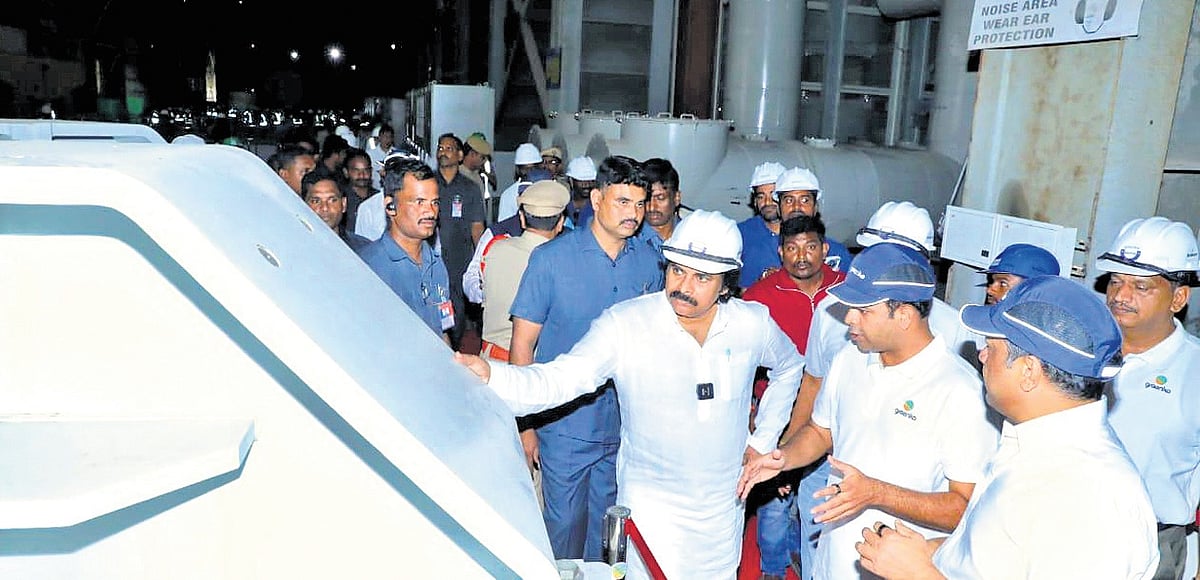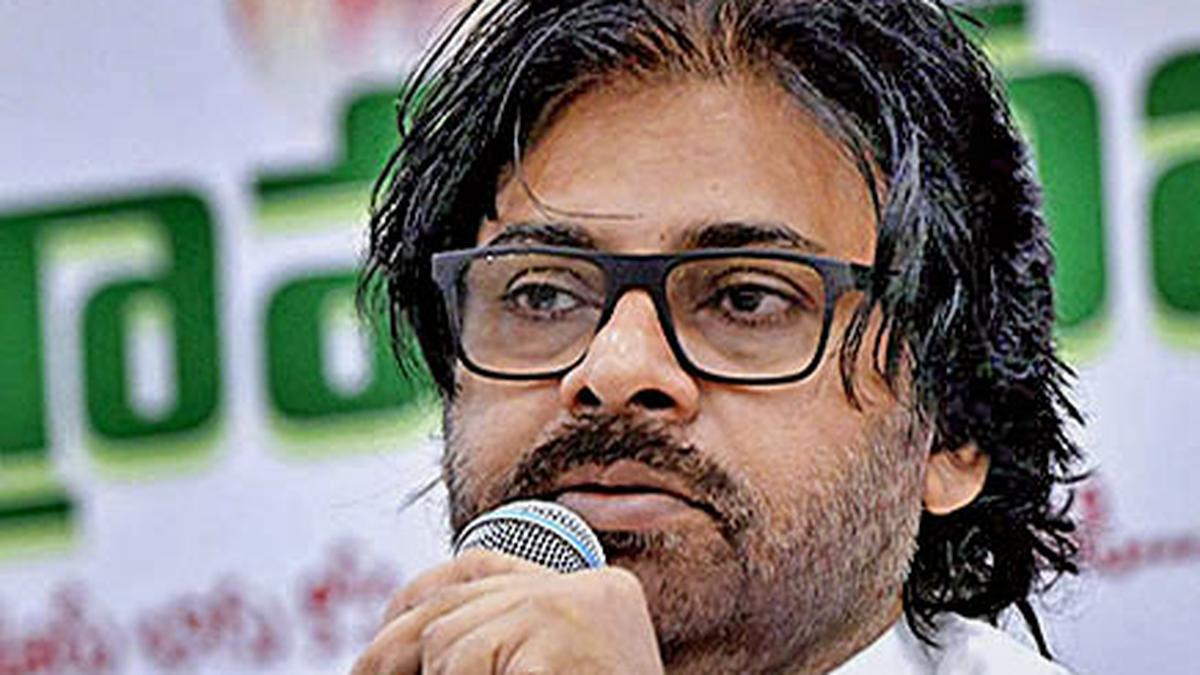When Deputy Chief Minister Pawan Kalyan announced that Greenko’s integrated renewable energy project could generate 50,000 jobs, it sparked a conversation not just about energy sources but also about the socio-economic fabric of Andhra Pradesh. It made me think about how much our future relies on sustainable initiatives as I recall a documentary about the transformative power of green jobs in various regions. These aren’t just statistics; they represent homes being built, families thriving, and a cleaner planet for coming generations.
The Financial Backbone of Greenko's Ambition
Greenko Energy Holdings, a major player in the Indian renewable energy sector, is making waves with its ambitious investment plans. The company has committed a staggering Rs 1.5 lakh crore overall, with a significant portion of Rs 30,000 crore allocated specifically for projects in Andhra Pradesh. This investment is not just a number; it represents a vision for a sustainable future.
Investment Details
- Total Investment: Rs 1.5 lakh crore
- Investment in Andhra Pradesh: Rs 30,000 crore
These figures are impressive. But what do they mean for the local economy and the country as a whole? The Deputy Chief Minister, Pawan Kalyan, emphasized the importance of these investments, stating,
"Investments in renewable energy are vital to our economic future."This sentiment reflects a growing recognition of the role renewable energy plays in economic development.
Projected Economic Benefits
The economic benefits of such large-scale investments are manifold. Firstly, they are expected to create around 50,000 jobs. This is crucial in a country where employment opportunities are often limited. Jobs in renewable energy can range from technical positions to administrative roles, providing a diverse array of employment options.
Moreover, the potential return on investment (ROI) is significant. As the world shifts towards cleaner energy sources, investments in renewable energy are likely to yield high returns. This is not just good for investors; it’s good for the economy. More jobs mean more spending, which can lead to a healthier local economy.
Comparison with Global Renewable Energy Investments
When comparing Greenko's investments to other global renewable energy projects, the scale is noteworthy. Many countries are investing heavily in renewable energy, but India's commitment through companies like Greenko stands out. For instance, countries like Germany and China have made substantial investments in solar and wind energy. However, India's unique challenges and opportunities make Greenko's approach particularly relevant.
In many ways, Greenko is at the forefront of a global movement. The company’s focus on integrated renewable energy solutions positions it as a leader in the sector. As the world grapples with climate change, investments like these are essential. They not only help in reducing carbon footprints but also pave the way for sustainable economic growth.
Greenko's Role in the Indian Energy Sector
Greenko's financial vision is clear. They aim to transform the energy landscape in India. By investing heavily in renewable energy, they are not just contributing to the energy mix but are also setting a precedent for future investments. This is crucial in a country where energy demands are skyrocketing.
Large-scale investments like those from Greenko can have a ripple effect on local economies. They can lead to improved infrastructure, better services, and enhanced quality of life for residents. The impact of such investments is not limited to just job creation; it extends to community development and environmental sustainability.
Conclusion
Greenko’s ambitious investment strategy is a testament to the potential of renewable energy in India. With a total investment of Rs 1.5 lakh crore and a focus on Rs 30,000 crore in Andhra Pradesh, the company is poised to make a significant impact. The projected economic benefits, job creation, and the potential for high returns on investment highlight the importance of these initiatives. As Pawan Kalyan aptly puts it, investments in renewable energy are indeed vital to our economic future.
Job Creation: A Closer Look at the Numbers
The recent announcement by the Deputy Chief Minister regarding the Greenko integrated renewable energy project has sparked significant interest. This project is projected to create 50,000 jobs. But what does this really mean for the community? Let's break it down.
Types of Jobs and Sectors Involved
First, let's look at the types of jobs that will be generated. The sectors involved in this project include:
- Engineering: This sector will require skilled professionals to design and implement renewable energy solutions.
- Construction: A large number of jobs will be in construction, building the infrastructure needed for renewable energy projects.
- Maintenance: Ongoing maintenance jobs will ensure that the energy systems operate efficiently over time.
These jobs are not just numbers on a page. They represent real opportunities for individuals in the community. They can lead to stable careers and contribute to economic growth.
Case Studies from Similar Projects
To understand the potential impact, we can look at case studies from similar projects in other regions. For instance, a renewable energy project in California created thousands of jobs, boosting the local economy. The success of such projects often hinges on effective planning and community involvement.
In another example, a wind farm in Texas not only generated jobs but also revitalized the local economy. This shows that with the right approach, renewable energy projects can yield significant benefits.
Long-Term Employment Sustainability vs. Short-Term Gains
One crucial aspect to consider is the difference between long-term employment sustainability and short-term gains. While the creation of 50,000 jobs is impressive, the focus should be on whether these jobs will last.
Short-term jobs may provide immediate relief, but they often lack stability. Long-term jobs, on the other hand, contribute to a sustainable economy. They provide ongoing income and benefits for workers and their families.
As economic analyst Smith puts it,
"Sustainable jobs mean sustainable futures for our community."This statement emphasizes the importance of creating jobs that will endure beyond the initial project phase.
Impact on Various Demographics
Another important factor is how green energy sectors can affect various demographics. Different groups may experience the benefits of job creation in unique ways. For instance:
- Younger workers might find new opportunities in engineering and technology roles.
- Older workers may transition into maintenance roles, leveraging their experience.
- Women and minorities could see increased representation in sectors that have traditionally been male-dominated.
It's essential to ensure that job training and education are accessible to all demographics. This will help sustain job creation and ensure that everyone can benefit from the new opportunities.
The Importance of Training and Education
Training and education play a vital role in sustaining job creation. Without proper training, workers may struggle to fill the new positions that arise. This could lead to a mismatch between available jobs and qualified candidates.
Investing in education programs can help bridge this gap. By providing training in relevant skills, communities can prepare their workforce for the jobs of the future. This not only benefits individuals but also strengthens the local economy.
In conclusion, the projected creation of 50,000 jobs through the Greenko integrated renewable energy project is a significant development. However, it is crucial to focus on the types of jobs, their sustainability, and the impact on various demographics. With the right approach, this project can lead to lasting benefits for the community.
The Environmental Impact of Greenko’s Projects
Greenko's initiatives in renewable energy are not just about generating power. They represent a significant shift in how we think about energy and its effects on our planet. The benefits of renewable energy over fossil fuels are becoming clearer every day. But what exactly does this mean for our environment?
Benefits of Renewable Energy
Renewable energy sources, such as wind and solar, offer numerous advantages compared to fossil fuels. Here are some key points to consider:
- Reduction in Carbon Emissions: Fossil fuels are notorious for their high carbon emissions. In contrast, renewable energy sources produce little to no emissions during operation. This shift can lead to a significant decrease in the overall carbon footprint.
- Improved Air Quality: With fewer emissions, the air quality in areas near renewable energy projects can improve dramatically. This is crucial for public health, as cleaner air can reduce respiratory issues and other health problems.
- Positive Effects on Local Ecosystems: While all energy projects have some impact on the environment, renewable projects can be designed to minimize disruption. By integrating local environmental concerns into planning, Greenko aims to protect and enhance local ecosystems.
Integration of Local Environmental Concerns
One of the standout features of Greenko’s approach is its commitment to local environmental integration. They recognize that every region has unique ecological characteristics. By taking these into account, they can develop projects that not only generate energy but also support local wildlife and habitats.
For example, when planning a solar farm, Greenko might consider the migratory patterns of local birds or the growth patterns of native plants. This thoughtful planning can lead to a project that coexists harmoniously with nature, rather than disrupting it.
Contrast with Fossil Fuel Dependency
Fossil fuel dependency has long been a major contributor to environmental degradation. The extraction and burning of coal, oil, and natural gas have led to severe air and water pollution. In contrast, renewable energy projects like those from Greenko offer a cleaner alternative.
As environmental expert John Doe states,
"The switch to renewable energy is not merely a trend, it's a necessity for our survival."This statement underscores the urgency of transitioning away from fossil fuels. The health of our planet depends on it.
Projected Outcomes
Greenko's projects are not just theoretical. They are backed by data and projections that highlight their potential impact:
- Estimated Reduction in Carbon Footprint: Hypothetically, Greenko's initiatives could lead to a reduction in carbon emissions by X%. This is a significant step toward combating climate change.
- Improvements in Air Quality Indices: After project completion, air quality indices are projected to improve, benefiting not just the environment but also the health of local communities.
Such outcomes are not just numbers; they represent a healthier future for generations to come. The positive ripple effects of these projects can be felt in many areas, from public health to economic growth.
Conclusion
Greenko's commitment to renewable energy is a beacon of hope in a world grappling with environmental challenges. By focusing on sustainable practices, they are paving the way for a cleaner, healthier future. Their projects not only promise to reduce carbon emissions and improve air quality but also aim to protect local ecosystems. This holistic approach is essential in the fight against climate change. As we look toward the future, the importance of transitioning to renewable energy cannot be overstated. It is not just a choice; it is a necessity for our survival and the health of our planet.



